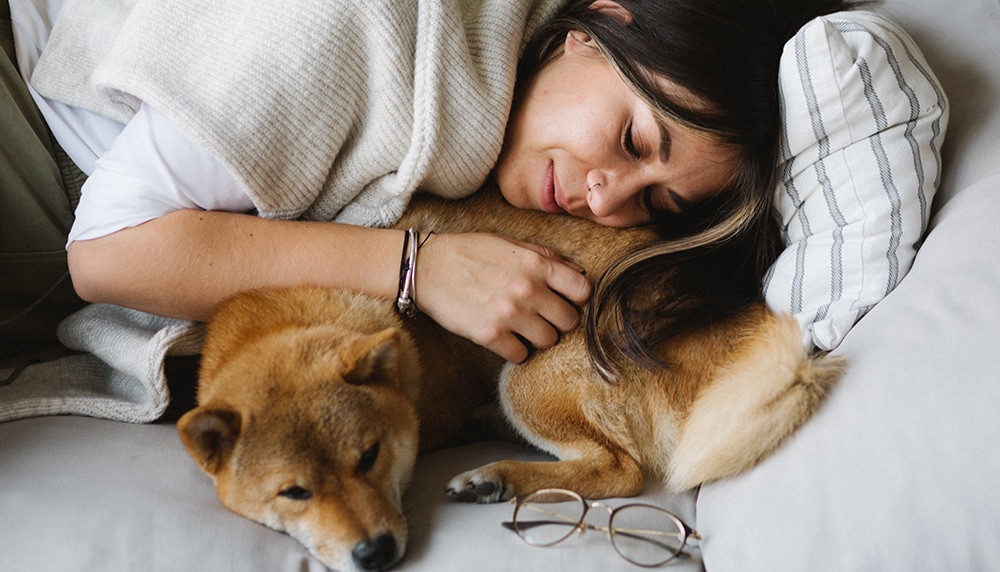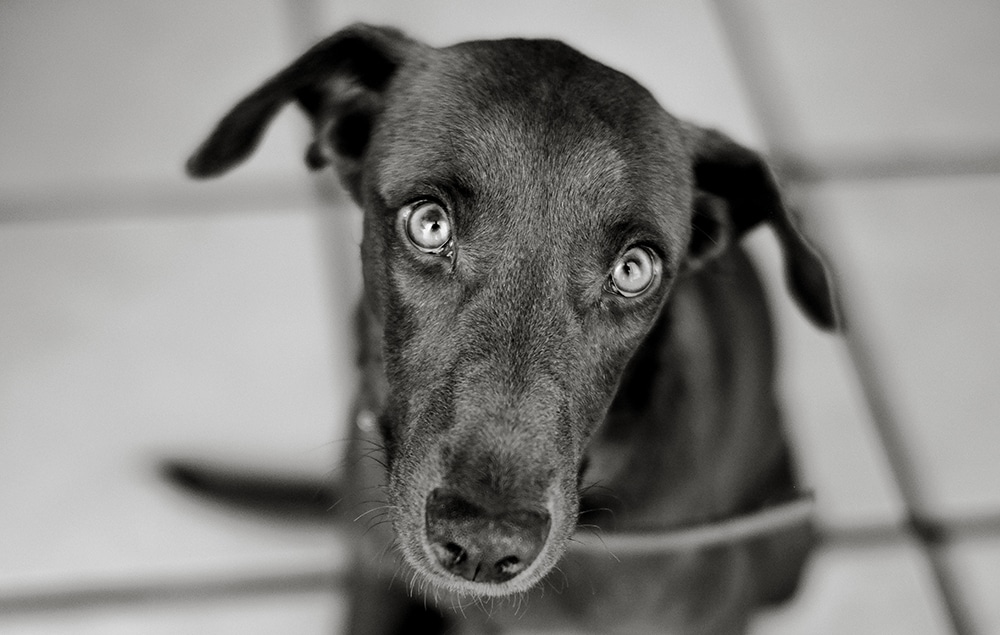Luckily there are many options to help calm your canine. This blog covers the signs of a stressed out dog and what to do when your dog is stressed.
Signs of a Stressed Dog
Pacing
This is the action of walking back and forth. Pacing is a way of getting rid of excess energy out of the body where tension has been building. This action occurs during the stressful situations your dog experiences and is usually a short term coping mechanism.
Barking or Whining
Barking and whining is a form of communication for dogs. When they are scared of something or uncomfortable in an environment, canines use barking and whining to communicate their fears to their owners.
Yawning
Dogs yawn when they are tired. They also yawn when they are stressed. A stress yawn is more intense and prolonged. This action is a type of calming gesture to deflect an assumed threat that makes the dog nervous.
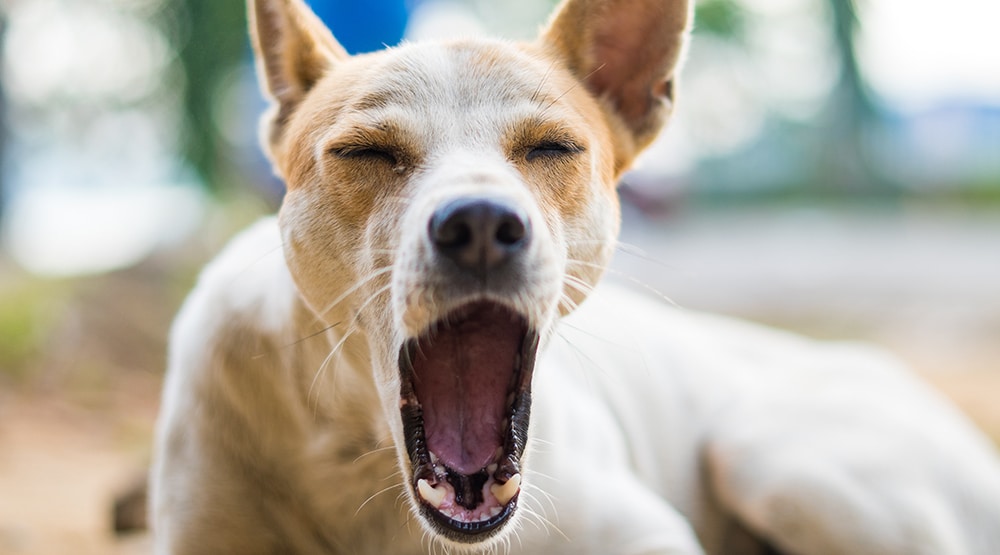
Panting
It is common to see a dog panting on a hot day. However, if your dog isn’t panting due to high temperatures or recent exercise, this could be a sign of stress. Take note of what might be triggering them to be stressed.
Escape or Hiding Behavior
A dog experiencing a stressful situation sometimes tries to escape or hide. They may go into another room or a different part of the park in order to put distance between themselves and whatever is making them stressed out.
Hiding behind the owner or a piece of furniture is an easy sign that a dog is nervous. Listen to this communication, leave them alone and let them come out from hiding in their own time.

Excessive Drooling
Normally, drooling occurs when a dog smells delicious food and they are anticipating a scrumptious meal. However, sometimes dogs drool when there is no food in sight. This is often a sign that the dog is feeling nervous.
Shedding
Dogs who are stressed tend to lose their fur at a rapid rate. At the veterinary clinic it is common to see tufts of fur floating around the waiting room. The action of shedding gets triggered when a dog is anxious.
Changes in Body Language
The body language of a dog reflects what they are feeling. A nervous dog has tense muscles, a tucked tail, wide eyes and ears flattened against their heads. They may also shake if they are very frightened.
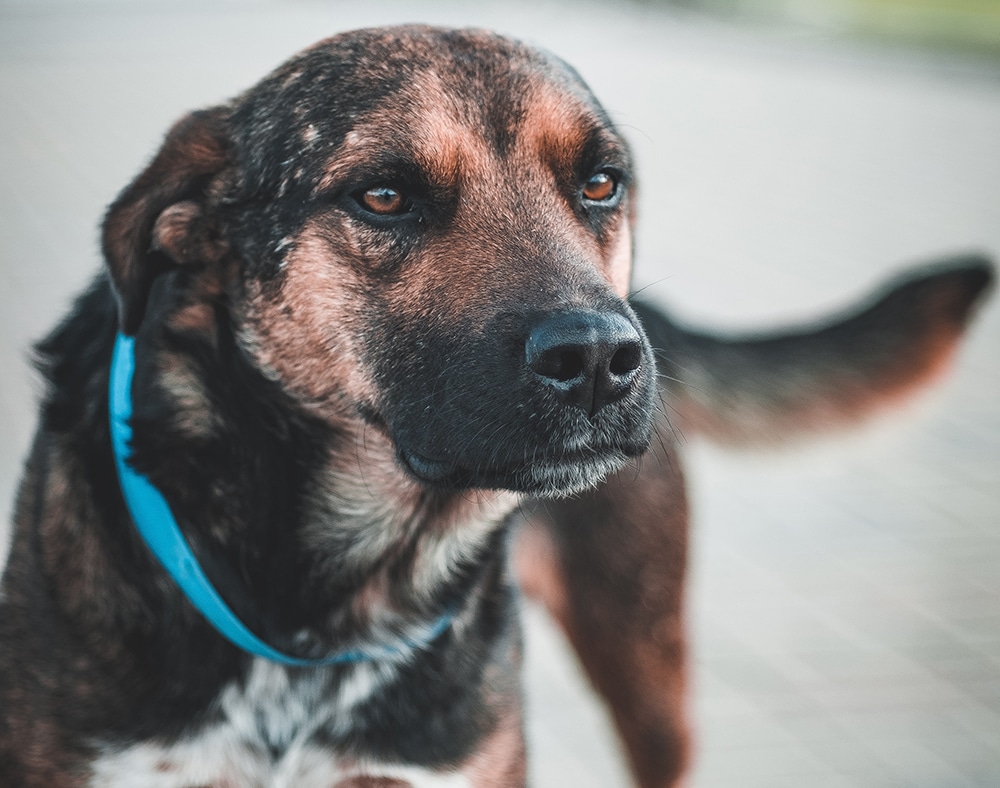
Destructive Behavior
If pacing doesn’t alleviate their nervous tension, a dog may resort to destructive behavior. Chewing furniture, digging holes in the yard and scratching doors are some ways that dogs release their excess energy and could indicate that the pet is stressed.
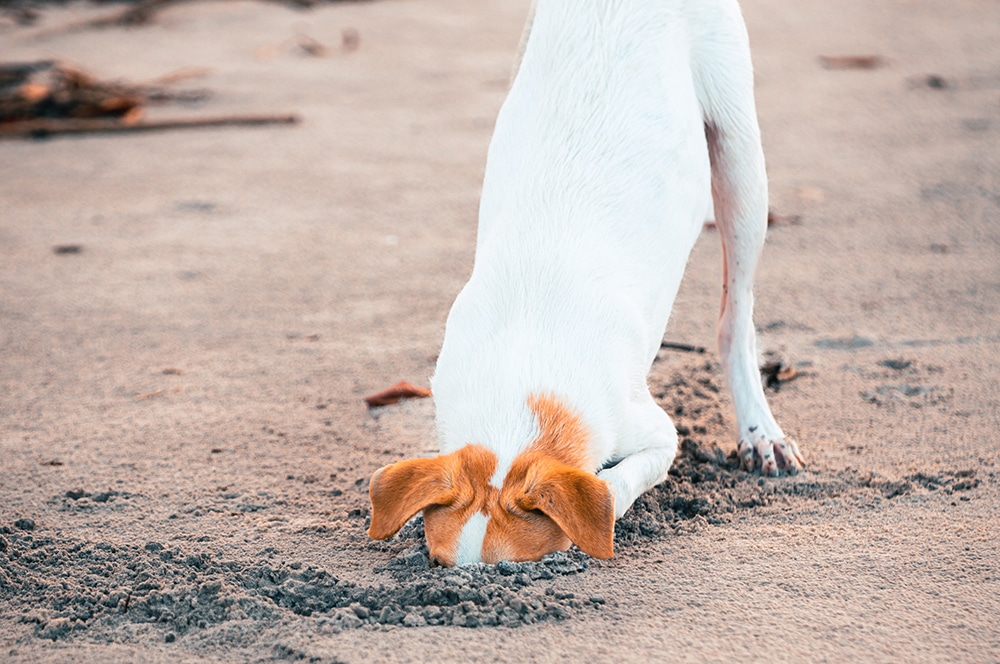
Changes in Bodily Functions
Stress hormones have a negative affect on your dog’s bodily functions. A large number of nerves are located in the digestive tract. When overly activated this can cause lack of appetite, gas build up, bloating, vomiting or diarrhea.
What to Do When your Dog is Stressed
Exercise your Dog
Stress causes excess energy in dogs. Walking and playing with your dog helps to relieve the nervous tension built up in their body. Exercise produces endorphins (the happy hormone). Take your dog for a walk or play with them in the yard before, during and after the stressful situation.
Physical Contact with your Dog
In the past, it was believed that comforting a nervous dog would only make the situation worse. This theory has since been debunked. Physical contact is proven to help calm dogs down. When your dog is feeling stressed you are encouraged to cuddle them, pick them up, give them a long petting session or give a massage to help them relax.
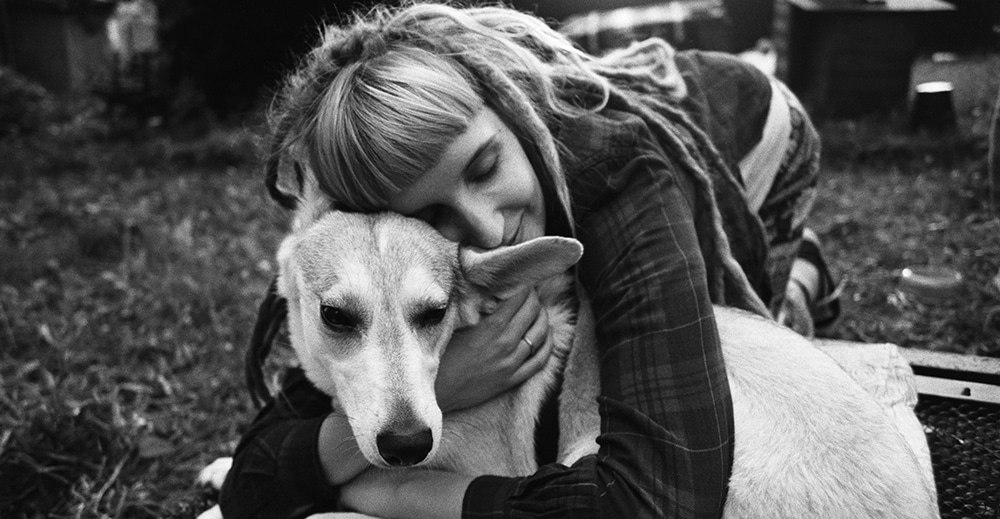
Play Music for your Dog
Music can help alleviate noise sensitivity. Use the power of music to drown out scary sounds. Research has found that dogs prefer classical music. They find that style of music calming and relaxing.
Schedule Breaks for your Dog
Breaks from a stressful situation can help a dog cope with their nervous energy. Removing them from a stress-inducing environment helps to alleviate their nerves for a little bit. Take the opportunity to help your dog calm down to prevent them from being overwhelmed.
Calming Coats and Shirts for your Dog
A calming coat or shirt is clothing designed to wrap around a dog’s torso. It applies mild, constant pressure to the dog. Many compare it to a swaddling cloth on a baby. The pressure releases calming hormones that relax the canine. Thundershirt is a great choice if you’re looking to try calming clothes for your pet.
Mental Stimulation for your Dog
Mental exercises are important to help reduce anxiety in dogs. It gives the dog a sense of control over their surroundings. Items like interactive toys, puzzles, games and chews activate their natural thinking abilities. Dogs become focused on the item in front of them instead of concentrating on their anxiety.

Hormone Diffusers for your Dog
Pheromone products release a manufactured scent that reminds dogs of their lactating mothers during nursing. This scent is not detectable by humans. Important parts of the dog’s brain associate the smell with safety and comfort. The synthetic chemical compound positively affects a dog’s behavior and nervous system by helping them relax and stay calm. Learn more in depth about hormone diffusers here.
CBD for your Dog
Products with CBD have become very popular in the canine world. It is important to point out that these products do not have THC in them and most come from hemp, not marijuana. There are no dependency issues and your dog does not become high off of these products.
CBD interacts with the endocannabinoid system. This system consists of a vast network of cellular receptors and chemical signals. CBD promotes a calming effect on this nervous system and supports a normal emotional balance. The dog feels relaxed and able to cope with their environment in a healthy way.
For more information on CBD for dogs, check out this blog.

Anxiety Medication for your Dog
Anxiety can be expressed in many ways. If your dog’s stress is intense, consistent and harmful to them, medication is a good option but isn’t the end-all-be-all. Prescription and over-the-counter medicines help lower your dog’s physical response to anxiety and are tools that work great alongside behavioral training. Talk to your vet about the best options for your pet.
Helping your Dog Live in a Calmer World
Some signs of anxiety are difficult to differentiate from regular dog behaviors. Knowing what to pay attention to helps pet owners be more aware of their dog’s feelings at any given moment. With this knowledge comes understanding of how to help your pet cope with their triggers and improve their emotional reactions.
There are many options to help calm your stressed out dog. All are good choices whether it be medication, CBD, physically comforting them, playing music for them or plugging in a hormone diffuser. Whichever one your pet positively responds to is the best option – and sometimes you may even want to try a combination of tactics.
Seeing your dog struggle with anxiety is heartbreaking. Learning the stress signals and what to do when your dog is stressed are key steps in helping them live in a calmer, happier world.
